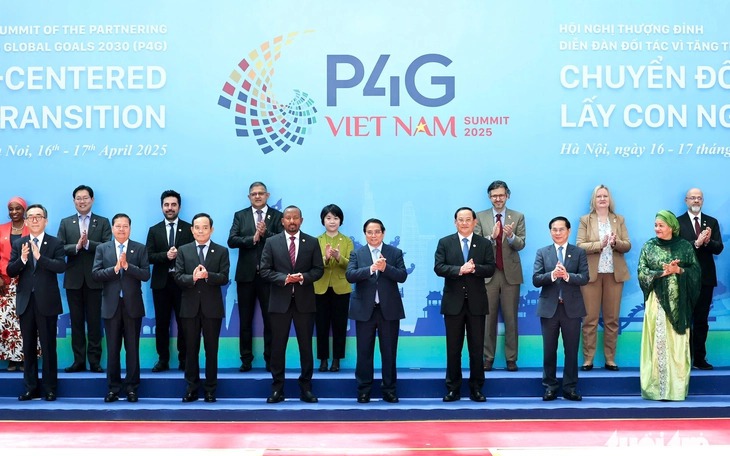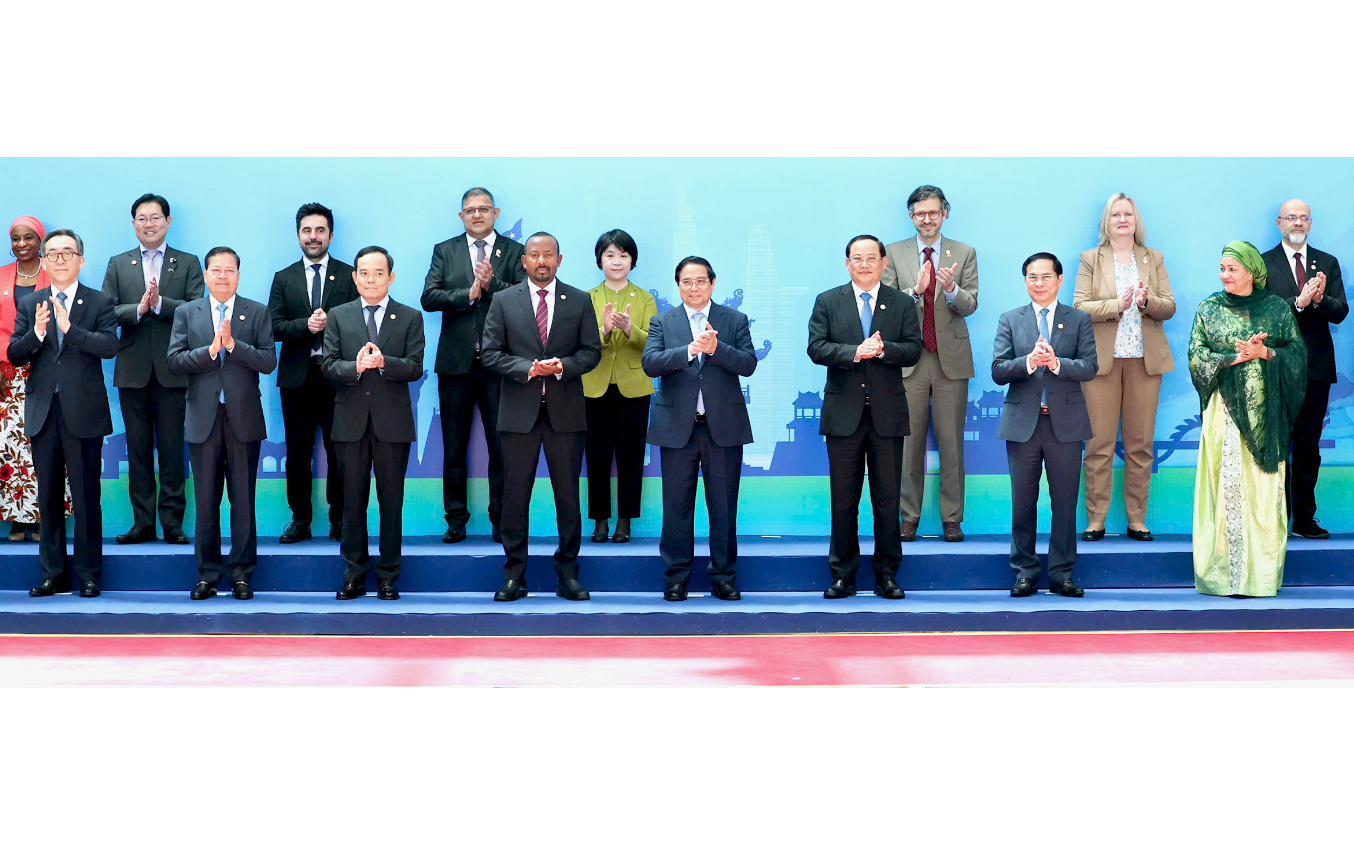
Public-private partnerships key to Vietnam's green growth: global leaders
The importance of public-private partnerships (PPP) in tackling climate change, fostering green growth, and achieving global sustainable development goals was highlighted by global leaders at the fourth Partnership for Green Growth and the Global Goals 2030 (P4G) Summit in Hanoi on Thursday.
The Vietnam-hosted P4G Summit, running from Monday to Thursday, gathered Vietnamese Party General Secretary To Lam, Prime Minister Pham Minh Chinh, along with many global leaders and representatives from international organizations.
Addressing the event, Alejandro Dorado, Commissioner for the Circular Economy of Spain’s Ministry for Ecological Transition and the Demographic Challenge, emphasized the need for stronger PPP models.
He outlined the complementary roles of the public and private sectors, saying that governments create legal frameworks and fiscal tools, while private companies bring capital, innovation, and advanced technology.
Spain serves as an example, having mobilized over €80 billion (US$91 billion) from the Next Generation EU fund, with €30 billion ($34 billion) directed to private-sector-led projects in renewable energy, hydrogen, storage systems, and electric vehicles.
Francesco Corvaro, special envoy for Climate Change of the Italian government, echoed the sentiment, highlighting successful PPPs such as the partnership between Italy’s grid operator Terna and public authorities in smart grid development.
He also cited Milan’s cooperation with businesses to improve public transportation as a model Vietnam could follow.
Beyond the national level, local authorities were also acknowledged as vital PPP stakeholders.
Corvaro said PPPs enable quick responses to societal needs while encouraging innovation.
As part of the P4G Summit on Thursday, a ministerial-level session spotlighted the barriers facing Vietnam’s green finance market, including the lack of standardized classifications and limited ESG (Environmental, Social, and Governance) disclosures that have yet to meet international standards.
Participants proposed strengthening national financial institutions, diversifying green financial products, scaling PPPs, and improving transparency and supervision.
Denmark’s State Secretary for Trade and Investments Lina Gandløse Hansen expressed optimism about Vietnam’s investment potential amid global geopolitical uncertainty.
Danish companies are known for their risk tolerance, but legal clarity and transparency remain essential for foreign investors, she said.
Denmark’s firms like Lego and Pandora have already invested in Vietnam.
Lina noted that renewable energy companies in particular are seeking clearer legal guidance to scale up wind power projects.
She pointed to promising policy signals, including Vietnam’s Power Development Plan 8 and Decree 57, which enables direct power purchase agreements between renewable producers and major electricity users.
The Danish official emphasized that Vietnam is becoming a strategic global partner for Denmark, particularly as companies look to diversify manufacturing and logistics hubs.
Danish strengths in green tech, she said, will support Vietnam’s green transition and national development goals.
The P4G Summit concluded with five major agreements emphasized by PM Chinh, including mobilizing finance for green transition, sustainable development, and PPP models; promoting the research and development of green technologies; advancing sustainable agriculture and food systems; developing a high-quality workforce in science, technology, and innovation; and transitioning to efficient and environmentally friendly energy systems with greater private-sector involvement.
Minh Duy - Duy Linh / Tuoi Tre News
Link nội dung: https://news.tuoitre.vn/public-private-partnerships-key-to-vietnams-green-growth-global-leaders-103250418183052965.htm

